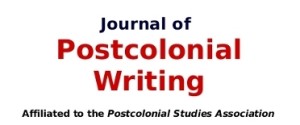PSA/Journal of Postcolonial Writing
Postgraduate Essay Competition 2022
It is with great pleasure that we are able to announce the winner and runner up of this year’s PSA/JPW PG Essay Prize.
This year’s winner is Sam Rye (University of Manchester)
Sam won for their essay “The Habitus and Productive Shame in Life & Times of Michael K”
The runner up is Poorvi Gaur (Queen Mary University, London)
Poorvi Gaur was highly commended for their essay “‘Mommy is Wise too’: Films Division of India’s Family Planning Campaign and the Locus of Women’s Agency (1948-75)”
The judges this year were Filippo Menozzi (Liverpool John Moores University), Sharae Deckard (University College Dublin), Veronica Barnsley (University of Sheffield) and Alex Tickell (Open University). The editors of JPW would like to congratulate both the winner and the runner up for their excellent contributions, and to thank the judges for their astute and careful readings of all the submissions. The standard of the competition was extremely high again this year, and the judges were very impressed with the entries.
PSA/Journal of Postcolonial Writing
Postgraduate Essay Competition 2023
The PSA/Journal of Postcolonial Writing Postgraduate Essay Competition provides a great opportunity for postgraduate scholars to showcase their work in a leading postcolonial academic journal and to earn some really useful research funding. The winners and runners-up constantly remind us of the innovative and timely contributions that postgraduate scholars make to postcolonial studies. The competition is a  means of duly recognising their work and of furthering their careers as postcolonialists.
means of duly recognising their work and of furthering their careers as postcolonialists.
The submission deadline for next year’s competition is 31 May 2023.
Applicants are invited to submit an essay on any topic relating to postcolonial studies. We welcome essays from all disciplines, including cultural studies, geography, politics, theology, history, anthropology, literature, film, or development studies. The competition is open to any postgraduate student who is registered at any institution anywhere in the world, by, or within three months of, the submission deadline.All essays are subject to an anonymous peer review by a panel of established experts in postcolonial studies. The winning essay will, subject to editorial approval, be published in The Journal of Postcolonial Writing, a journal that has a long tradition of publishing innovative work in the field and which has had an ongoing partnership with the PSA.The winner will be awarded £250, and, should they not already be a member, will receive a complimentary year-long membership to the PSA. The runner-up will also have their work notably mentioned.
Guidelines for applicants:
- Essays should be no longer than 7,500 words and no shorter than 7,000 (including bibliography and any notes). Any essays that are too long or too short will be automatically disqualified, so please ensure your word count meets this requirement.
- Essays must conform to the MLA referencing style.
- The author’s identity must not be identifiable in any way from the essay (electronic tags, such as those on Microsoft word, should be removed).
- Only one submission per person is allowed. Candidates who have previously entered the competition are welcome to enter again, but must submit a different piece of work.
- No essay will be considered that has been published in any form elsewhere, whether in print form or online.
- No essay, in whole or part, should be submitted for consideration for publication elsewhere before the winner is announced.
- Entries must be submitted between January 2023 and 31 May 2023.
- The judges’ and the JPW’s editors’ decisions are final.
Some useful tips!
- Make sure the essay stands proudly on its own. If it is part of your MA dissertation or PhD thesis, ensure that the article frames your argument cogently. There’s nothing our judges like less than reading an entry that is directly drawn from an un-adapted source.
- How is your work contributing to the ongoing expansion and revision of postcolonial studies? Don’t be afraid of commenting on the contribution to your field. If you don’t mention the word ‘postcolonial’ at some point, then something must be going wrong!
- Share your work with your peers and supervisor(s) for preliminary feedback, or undertake changes suggested by markers’ comments. Their suggestions will provide useful ways of revising your article before submission and will really make a difference.
If you are an ambitious and hardworking postgraduate, we encourage you to submit an essay. If you are an established academic, please spread the word to your own students or to any postgraduates whose innovative work you think is in need of public recognition. Thank you, and good luck!
